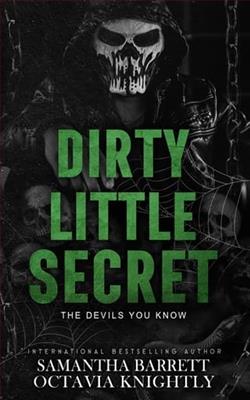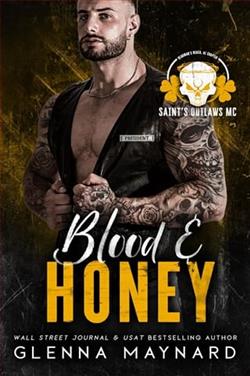Page 9 of Everything She Feared
No one had said anything about that moment to Pierce. And, on the first day she’d arrived, the team was all smiles and handshakes. Maybe the feeling she’d sensed was in her head. Or maybe it was related to some testosterone-fueled initiation ritual, a way to test her?
If so, then bring it on.
Now, with the Explorer rushing east on the interstate, taking them closer to the death of a teenage girl, Benton whistled through his teeth.
“So Art made you the lead. Do you really think you’re ready for this?”
Am I ready for this?
Pierce looked down at her work. Then, for a moment, she turned to the window, the trees blurring by like her life. Her family was always moving, she was always the new kid, and she was often insulted, ostracized. The stench of racism was always near. Her mom and dad telling her: “Push through it, Kim. Use it to make you stronger.”
Pierce did.
Her mother and father owned a two-person office cleaning company. Pierce worked with them when she was a teen. When her parents got a contract to clean a police station, a couple officers got her thinking about becoming a cop.
Like her parents, Pierce worked hard, scraped to save, went to college, got a degree in criminal justice, and along the way became a wife, mother and deputy.
She excelled at basic academy training, and while a deputy, she’d completed as many advanced courses as she could, including homicide investigation and questioning witnesses, victims and suspects. And she worked with detectives—learning, always learning.
In her five years as a patrol deputy, Pierce had seen it all: bloated bodies of drowning victims, pugilistic positioning of fire victims, bodies entwined with crushed metal at accidents; beatings, stabbings, shootings, suicides and homicides. So did she think she was ready for this? After several seconds, she turned to answer Benton.
“No, Carl.”
“What?” He stared at her, intense, no-nonsense. “You don’t think you’re ready?”
Her eyes betrayed nothing as she stared back.
“I don’tthinkI’m ready. Iamready.”
He nodded, a smile dawning. “Good,” he said. “You should start a running case log, with times.”
“Already done.”
“Well, look at you, Kim. Good.” Eyes on the road ahead, Benton stuck out his bottom lip. “Besides, this is a slam dunk. Sad, but an accidental death, a teen taking a selfie.”
Now it was Pierce’s turn to raise her eyebrows—she found it interesting that Benton could draw a conclusion without setting foot at the scene, or talking to a witness. She got back to work on her notes, remembering key points concerning a wilderness death.
Always assume criminal intent until proven otherwise.
A wilderness death can be a perfect murder.
6
Near North Bend, Washington
Benton wheeled theirFord into the parking lot at Sparrow Song Park.
News vans, sheriff’s units and private vehicles were there. Pierce counted them and made notes along with the time. The medical examiner was there, too.
About two dozen people, including media, were clustered at the yellow tape cordoning off the entrance to the trail where a deputy was posted.
Pierce and Benton were in plain clothes; both wore jeans. They put on jackets withSHERIFFon the back and displayed their badges in the front. Gathering what they needed, they left their SUV.
Benton pointed his chin toward an unmarked SUV as it arrived and parked nearby. Detectives Grotowski and Tilden got out and joined them.
“The gang’s all here. It’s all yours, Kim,” Benton said as a news helicopter thudded overhead.
Pierce took a moment to observe the vehicles, the lot, the dome security camera fixed to a light post; she took in the people at the tape, the news cameras, the sense of urgency.















